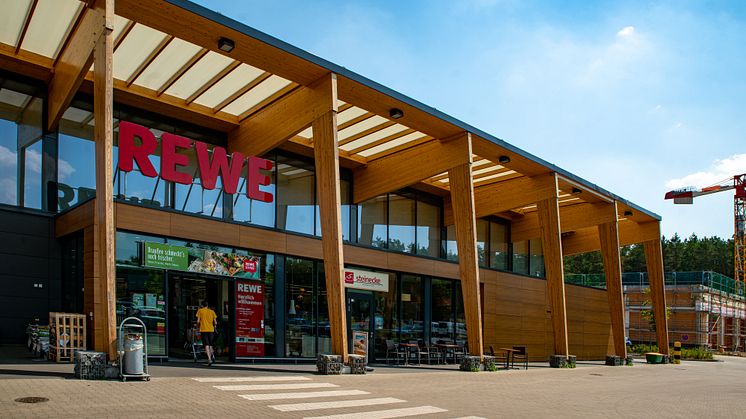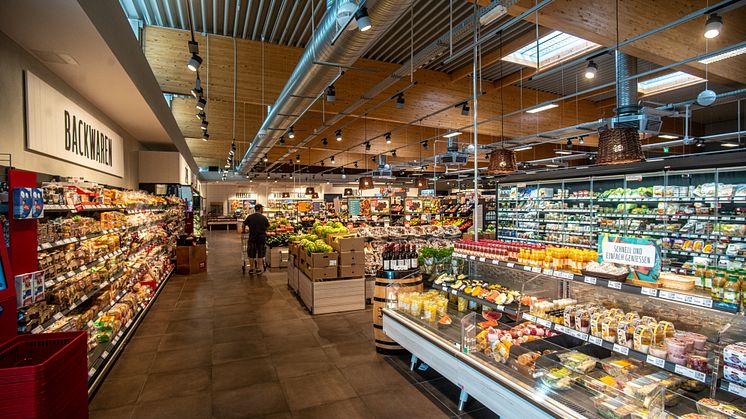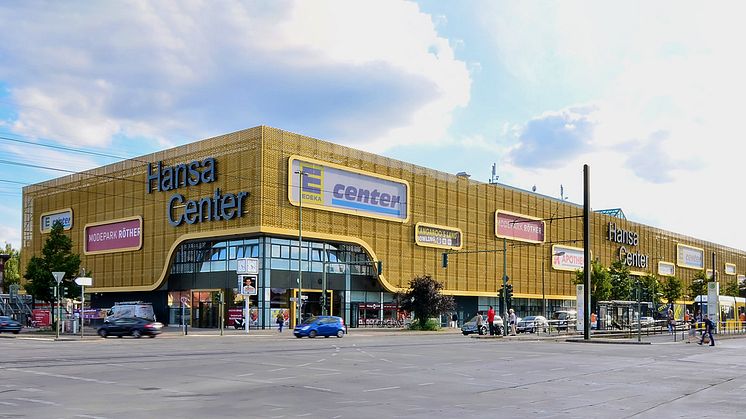
Blog post -
Why You Should Invest in Grocery Real Estate - People Always Need to Eat!
Invest in What People Need, Not Just What They Want.
In a world where uncertainty looms and markets fluctuate, one thing remains constant: people need to eat. Grocery stores serve as the backbone of our daily lives, providing not just food but also a sense of community and convenience. If you’re considering your next investment move, why not focus on German grocery real estate? With its blend of necessity and stability, this market offers a promising avenue for savvy investors looking to reap long-term benefits. From Germany's competitive pricing to enduring demand drivers, investing in grocery real estate is more than just smart; it’s essential in today’s economy. Let’s dive into why putting your money into this sector could be one of the best decisions you make.
Grocery Retail: A Market Built on Necessity
Grocery retail stands apart as a market fundamentally anchored in necessity. Unlike luxury goods or fleeting trends, food is a basic human requirement. This age-old demand creates an unshakeable foundation for grocery businesses.
Consumers turn to grocery stores regardless of economic conditions. Whether times are good or bad, people prioritise their meals and essentials over other expenditures. This inherent need provides resilience against market fluctuations. In H1 2025, grocery sales in Germany grew by 2.4%, slightly outpacing food inflation (2.3%).
Moreover, grocery shopping often fosters habits that become ingrained in daily life. Weekly trips to the store create routine and familiarity, further cementing customer loyalty.
In Germany, this essential nature of groceries complements the country’s structured lifestyle and efficient supply chains. Investors can find peace of mind knowing that even amid uncertainties, the appetite for food remains ever-present, making it a stable marketplace ripe for investment opportunities.
Germany’s Price Advantage: Room to Grow
Germany stands out in Europe for its low grocery prices, with a Groceries Index of 56.7, below that of France (63.6), Austria (62.2), and the Netherlands (5.8). This price advantage attracts both consumers and investors alike.
The country’s efficient supply chain contributes significantly to keeping costs down. Grocers benefit from streamlined logistics, allowing them to pass savings on to shoppers. Additionally, strong competition among retailers fosters a dynamic market environment. Supermarkets constantly vie for customers, leading to better deals and promotions that keep prices competitive. In particular discount chains like Aldi and Lidl are very dominant in the market, limiting price hikes.
German grocery stores also emphasise value without compromising quality. Shoppers can find fresh produce, meats, and pantry staples at reasonable prices while benefiting from high standards of food safety. This quality coupled with affordability not only supports everyday living but also encourages consumer loyalty. The average German spends just €200–€350/month on groceries, only 7–12% of the net monthly salary (€2,850). When people know they can rely on low-cost, high-quality groceries consistently, it enhances the overall stability of the retail sector. With cost of living 11% below the European average, Germany offers a unique opportunity to capitalise on lower operational costs.
Profitability of German Grocers
German grocers have established a reputation for resilience and profitability. Their business models are designed to thrive even in fluctuating economic climates. This is partly due to their ability to maintain low operational costs while still delivering quality products.
The competitive landscape fosters innovation among retailers, leading them to optimise supply chains and enhance customer experiences. Many German grocery stores leverage local sourcing, reducing transportation costs and ensuring fresher produce.
Moreover, consumer loyalty plays a crucial role. Shoppers often prefer familiar brands that offer value for money. This habit creates consistent foot traffic, bolstering sales stability across various store formats. A loyal consumer base, purchasing frequently, ensures consistent profitability for the grocers. The large gap between a grocers revenue compared to their low operating costs signals potential for moderate rent increases without breaking affordability thresholds, a significant factor for any investor considering grocery real estate in Germany.
Real Estate Metrics: Stability & Value
When considering grocery real estate in Germany, stability and value are key metrics. Grocery stores thrive on consistent demand, making them a reliable investment. People will always need to eat, and this necessity translates to steady foot traffic.
Germany's robust economy further supports the resilience of grocery properties. Low unemployment rates contribute to consumer spending power. Investors can expect relatively stable rental income from tenants who operate within this essential sector.
Location plays a significant role as well. Urban areas with high population density tend to yield better returns, given their proximity to consumers. This means that investing in German grocery real estate often allows for long-term appreciation in value. Prime yields remain steady at 4.64% for high-street grocery properties and 4.9% for retail parks1, outperforming offices (4.96%) and logistics (4.4%).
Furthermore, the ongoing trend toward sustainability and local sourcing enhances the appeal of these investments. As communities increasingly support local businesses, grocery retailers become more integrated into everyday life while providing landlords with secure cash flow opportunities.
Future-Proof Demand Drivers
Germany's urban landscape thrives on high population density. Population density is a crucial demand driver for grocery stores. As Germany's population increases and urbanisation continues, the need for conveniently located grocery stores will grow, making grocery retail a reliable investment.
Generational shifts also play a significant role in shaping consumer habits. Younger generations tend to prioritise fresh, local products and sustainable practices. Grocers catering to these preferences stand to gain market share as they adapt their offerings.
E-commerce has transformed many sectors, but groceries show resilience against this trend with just 2% of groceries being bought online. While online shopping continues to grow, the tactile experience of selecting fresh produce keeps traditional grocers relevant. Many consumers still prefer shopping in person for essentials, securing the relevance of physical grocery stores.
As daily life evolves, so too does the demand for grocery services that meet changing needs while remaining convenient and accessible.
A Hedge Against Uncertainty
Grocery real estate thrives on a simple truth: people prioritise eating. In Germany, the grocery real estate sector combines essential demand with undervalued rental growth potential, all while benefiting from the country’s economic stability.
Investing in German grocery real estate is a strategic move that combines stability and necessity. With the consistent demand for groceries, this sector remains resilient even during economic fluctuations. As population density increases, urban areas will continue to see growth in grocery retail spaces.
The relatively low grocery costs in Germany provide an attractive price advantage that can lead to higher foot traffic and sales volume for grocers. This profitability translates well into real estate investments, where metrics indicate strong returns over time.
Moreover, the future looks promising with generational shifts favouring convenience and sustainability, both of which bode well for brick-and-mortar grocery stores despite rising e-commerce trends. People will always need food; thus, investing in this sector acts as a hedge against uncertainty.
With these factors considered, aligning your investment strategy with the needs of consumers ensures you tap into an essential market, a smart choice amidst ever-changing economic landscapes.




